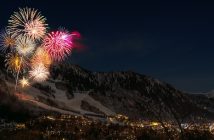It was a grey day but warm. The sun periodically burned through the blanket of cloud so I chanced an outside table at one of the cafés on Swain’s Lane. It was the last and smallest of these and had appeared relatively recently in a baffling piece of entrepreneurial opportunism as it was so inferior to its neighbours. The owner evidently thought that serving food and drink was enough, that quality, décor and service were unimportant. He was a small, swarthy Iranian with a limp. I saw him chatting to a group of his friends outside, fleshy men in high waisted trousers discussing business. I think the only people who went there were friends of his or the waitresses, or others who couldn’t secure a table at one of the other cafes.
So I sat, copy of Brideshead Revisited in hand, looking enviously over at the well-heeled diners tucking into mountainous salads at Kalendar and Café Mozart.
A figure caught my eye. I recognised him, I think, from the year before. He was tallish, or at least of above average height, and slim. He had a Beatles-style mop of dark hair which fell down over his eyes, and he himself was dark and interesting looking. In different circumstances he might even have been described as good looking. He was standing at a table, asking for a light from a couple of tanned vulturous looking women. There was nothing remarkable in this; it was perhaps a little forward, perhaps a little louche or abject. But equally there could have been a raffishness to it which would have been excusable, charming even.
As they lit his cigarette he stepped away from the table and staggered slightly. He lurched along for a few steps then paused, drawing heavily on the burning fag. A sunken backpack hung from his shoulders. The seat of his buff-coloured trousers was soiled and tattered. He was a drunk.
I watched him intermittently over the pages of my book, at first with a sort of curiosity, then with disgust, then with wariness that his roaming and erratic eye might fall on me. Then with a sort of heartfelt sympathy.
He stumbled into the shade of the bus shelter and slumped on the seat. A few moments later though he had come round to the shop-side again. He had nowhere to go, but was drawn to cavort in front of the fine diners, to cause cappuccino cups to bounce rather too heavily on their saucers and for the devouring of croissants to be done a little more timidly than the natural rapacity required.
Like many drunks he would run a gamut of emotions in only a minute – anger, joy, suspicion, mawkishness, and anger again. One moment he would be leaning urbanely against the corner of the bus shelter, hand on hip, smoking like a dandy, the next he would be hammering on the Perspex screen in demonic fury, spitting invectives, causing innocent strollers to spin round in consternation. He would stand in the middle of the pavement, engaged in animated discussion with himself, gesticulating passionately, then would fold suddenly and slope off despondently like clothes being drawn in on a line. He approached the two women who had given him the cigarette, hand outstretched in greeting. But they wouldn’t take it and he turned away in sulken confusion.
Eventually he collapsed at a vacant table in the furthest café, his back towards me. He was one of us, but not one of us. I looked around at the other diners, in groups, pairs, or alone. They were talking, eating, reading or people watching. The only ripple that passed through them was the collective objection to this chaotic thing which had dropped down amongst them. And some, or maybe all of them may have felt the seething passions which coursed so brazenly through the stranger in their midst. But they had their lids on – their lids of composure and decency and charm. And he didn’t. He had lost it long ago.
He reminded me of my friend P-, a musician. He shared the same crapulous volatility, the same tottering gait of a ruined king trying to preserve his dignity. The same separateness and veiled desire to connect. Because that was what this was really about. The rantings and ravings were just the roar of a wounded beast who wanted to crawl into connectedness with another human being, to share his passions and his fears, to touch another’s soul. And the rich diners, surrounded by their friends and their things, only saw a broken fool, and although they too were disconnected from their fellow man, they had their things and their jobs to preserve the illusion that all was well.
I wondered how long he would be allowed to stay at the table. After all, he had not paid for anything and he couldn’t be still. Moments of gesticulative soliloquy were pierced by eruptions of anger when all his limbs seemed to be jerked by invisible strings and he would kick and thump the table.
Eventually he was approached by a white, stocky man in long shorts who I initially took for a waiter. He was, in fact, a diner, and the presence of his girlfriend had no doubt spurred this protective and slightly proprietorial action. Placing his hand on the man’s shoulder he leaned in and spoke quietly into his ear. The latter, in profile, grinned sardonically. I predicted trouble, violence even, but after a few minutes the drunkard climbed to his feet in docile capitulation and stumbled off down the street. I thought about going after him, to talk and to show that he wasn’t alone, but when I looked round he had disappeared so I ordered another coffee and went back to my book.
Written and illustrated by Harry Chapman.




